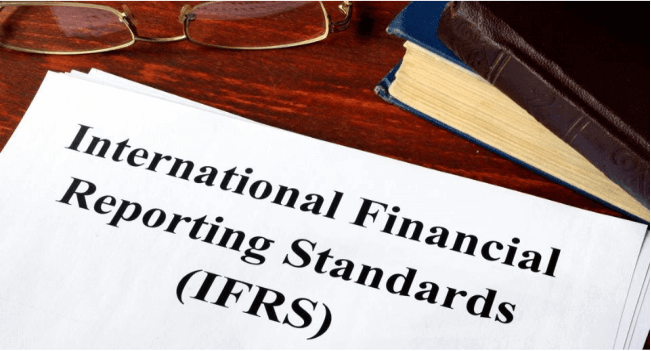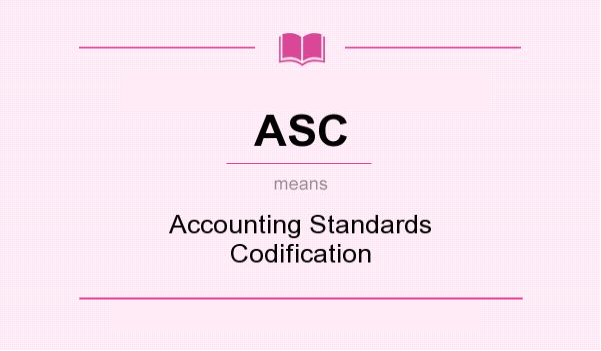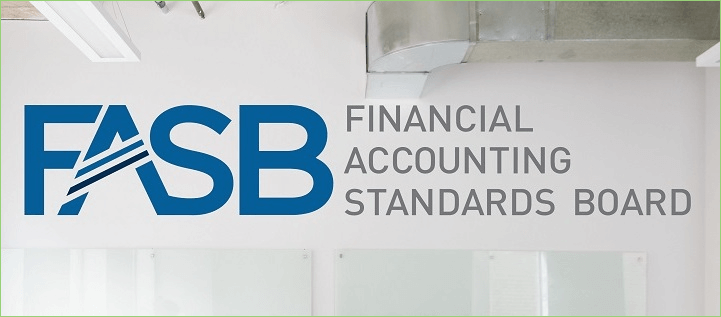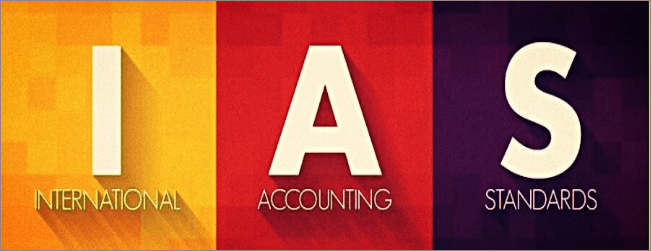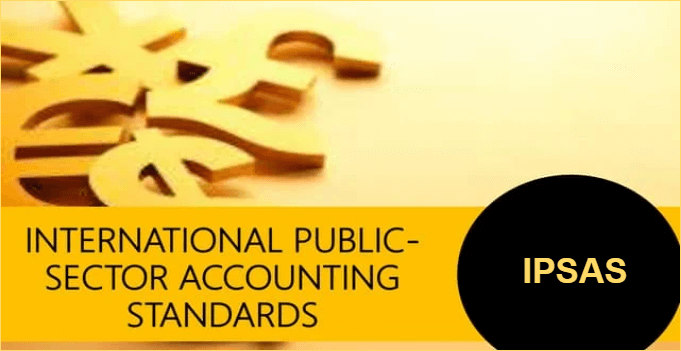Accounting Standards Committee (ASC)Overview of the Accounting Standards Committee (ASC)The Accounting Standards Committee was originally set up as the Accounting Standards Steering Committee [ASSC] by the Institute of Chartered Accountants in England and Wales [ICAEW] in 1970. Its creation followed several accounting scandals in the late 1960s, and the committee was charged with developing a system of definitive standards for financial reporting and accounting in the UK. 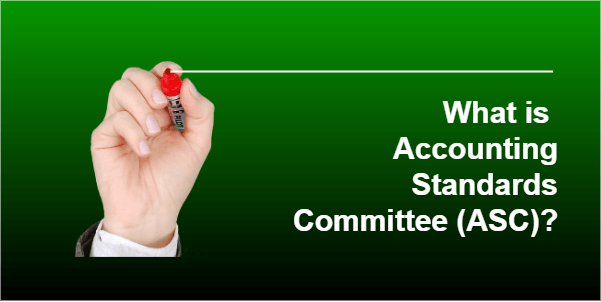
Other UK accountancy bodies soon began to have representation in the ASSC. For example:
Meanwhile, in 1970, the Consultative Committee of Accountancy Bodies [CCAB] was formed in order to facilitate better coordination between all connecting bodies. In February 1976, the ASSC was reconstituted as the Accounting Standards Committee [ASC], which reported to the CCAB (in 1985, the ASC became a full committee of the CCAB). The original aims of these bodies were very similar. So, the original aims of the ASC were defined as follows:
The ASC developed as a quasi-regulatory body for the accounting profession in its area of competence. The everyday work of the committee was undertaken by a secretariat within the ICAEW Technical Directorate; the secretariat played an active role in developing standards. Originally, the purpose of the ASC was to produce 'definitive' statements on financial accounting and reporting, although this was later modified to 'authoritative' statements in recognition of the complex realities of accounting practices. However, members of the Institutes were expected to adhere to the recommended standards or, if they did not, to explain their reasons for their departure. Reforms to the ASC constitution in 1982 saw membership of the committee opened to users of financial information in business, and the public sector, and government observers were also allowed to participate. Later in 1988, the Dearing Report on Accounting Standards was published, which recommended a number of reforms, including the creation of a Financial Reporting Council (FRC) and an Accounting Standards Board. Subsequently, the Accounting Standards Board, a subsidiary body of the FRC, replaced the ASC in 1990. History and Development of the ASCThe Accounting Standards Committee (ASC) is a group of experts that is responsible for setting accounting standards and ensuring that they are followed. It is a public body that works in the public interest and is made up of representatives from the public, private, and charitable sectors. The purpose of the ASC is to ensure that financial information is reliable, consistent, and trustworthy. The ASC was established in 1969 and is chaired by the Financial Reporting Council (FRC). It is responsible for setting accounting standards in the UK, providing guidance on financial reporting, and providing advice and consultation on accounting matters. The ASC is also responsible for developing and approving accounting standards that are followed in the UK. The ASC is made up of a group of experts and representatives from the public, private, and charitable sectors. It includes members from the Institute of Chartered Accountants in England and Wales (ICAEW), the Chartered Institute of Management Accountants (CIMA), and the Association of Chartered Certified Accountants (ACCA). The members of the ASC are selected on the basis of their expertise and experience in the field of accounting. The Role and Responsibilities of the ASCThe ASC is responsible for setting accounting standards that are followed in the UK. These standards are established by the FRC and approved by the ASC. The standards set by the ASC are known as Generally Accepted Accounting Principles (GAAP). The ASC is also responsible for providing guidance on financial reporting and providing advice and consultation on accounting matters. This includes providing advice and guidance to preparers of financial statements and users of financial statements. The ASC also reviews the accounting standards and guidance issued by the FRC to ensure they are consistent and up to date. The ASC is also responsible for monitoring the implementation of the accounting standards and guidance issued by the FRC. It reviews the financial statements of companies to ensure they are compliant with the accounting standards and guidance. The ASC also reviews the financial statements of auditors to ensure they are following the accounting standards and guidance. The ASC also plays an important role in the development of new accounting standards. It works with the FRC to develop new accounting standards and guidance and to review existing ones. It also provides advice and consultation to the FRC on proposed changes to the accounting standards and guidance. The ASC is also responsible for ensuring that the accounting standards it sets are followed by companies. It monitors the implementation of the accounting standards and guidance and takes action against companies that are not compliant. The ASC also works with the FRC to investigate any allegations of non-compliance and to ensure compliance with the accounting standards. The ASC plays an important role in ensuring that financial information presented by companies is reliable and consistent. It also ensures that users of financial statements can trust the information they are receiving. The ASC works with the FRC to ensure that the accounting standards and guidance are up to date and followed by companies. The Role of Technology in the ASC's WorkThe Accounting Standards Committee (ASC) is responsible for setting the standards for financial accounting and reporting that are accepted by the majority of organizations across the world. The ASC is responsible for developing and maintaining international accounting standards, with an aim to ensure transparency, consistency, and clarity in financial reporting. The role of technology in the work of the ASC is extremely important. Technology plays a key role in helping the ASC to evaluate and analyze financial data, develop new standards, and deliver updated and accurate information to the public. Technology has enabled the ASC to automate the process of accounting and to take advantage of real-time data from multiple sources. For example, the ASC can use technology to compile and analyze financial data from a variety of sources, such as banks, retailers, and suppliers. This allows the ASC to develop more accurate and reliable standards that are applicable to multiple industries. Technology also helps the ASC to communicate and collaborate more effectively with accounting professionals and other stakeholders. The ASC can use technology to share documents and exchange ideas more quickly and efficiently. Technology also helps the ASC to stay informed about developments in global accounting standards by providing access to online databases and news feeds. In conclusion, technology plays a vital role in the work of the ASC. Technology enables the ASC to develop more accurate and reliable standards, communicate and collaborate more effectively, and stay informed about developments in global accounting standards. Challenges Faced by the ASC and Its Future DirectionChallenges
Future DirectionThe future direction for the ASC is to continue to set and maintain high-quality accounting standards that are accepted and implemented by companies in all countries. The ASC must also continue to harmonize accounting standards across countries, simplify standards and keep pace with technological advancements. ASC's Impact on Accounting PracticesThe ASC initially focused on codifying accounting principles and providing guidance on financial statement disclosure requirements. It also developed accounting standards for new business transactions and provided guidance on auditing and accounting practices. The ASC also played an important role in developing accounting standards for the international community. The ASC has had a significant impact on the way accounting is practiced in the United States. Its standards have become the foundation of modern accounting practices. The ASC's standards and guidelines have been adopted by most accounting firms and are used by professionals across the world when preparing and reviewing financial statements. The ASC's efforts have helped to ensure the accuracy of financial statements and have helped to promote transparency and accountability in the business world. The ASC's standards have also been instrumental in helping businesses comply with the laws and regulations governing the preparation of financial statements. The ASC's efforts have helped make the United States a leader in accounting practices. ASC's Influence on the Financial Reporting FrameworkThe Accounting Standards Committee (ASC) plays a significant role in the financial reporting framework by setting accounting standards that must be followed by all public companies. The ASC is responsible for developing, approving, and revising accounting standards for public companies. These standards are used by companies to prepare their financial statements and disclosures in accordance with generally accepted accounting principles (GAAP). The ASC also provides guidance and advice on accounting issues and assists in resolving disputes between companies and investors over financial reporting matters. The ASC's influence on financial reporting is important because it helps ensure that financial statements are accurate and reliable and provides investors with confidence in the information they receive. The ASC's work also helps to protect investors by encouraging the adoption of standards that promote transparency and accountability. Different Types of Accounting Standards Used by the ASC
The Convergence of International Accounting Standards with the ASCThe International Accounting Standards Board (IASB) is the body responsible for developing and publishing International Financial Reporting Standards (IFRS). Its mission is to develop, in the public interest, a single set of high-quality, understandable, enforceable, and globally accepted financial reporting standards. The IASB works closely with the Accounting Standards Committee (ASC) in many areas, including the convergence of international accounting standards with the US's Generally Accepted Accounting Principles (GAAP). The ASC and the IASB have agreed to a convergence plan that outlines the steps they will take to bring US-based GAAP and IFRS into closer alignment. This includes making changes to both US GAAP and IFRS to reflect developments in the global economy better and to ensure that the two sets of standards are as similar as possible. The two organizations are also committed to working together to develop and issue new standards, as well as jointly endorsing interpretations and guidance. The goal of the convergence plan is to improve the comparability of financial reporting across countries, which will make it easier for businesses, investors, and other users of financial information to understand and use financial statements. The ASC and the IASB are confident that the convergence of international accounting standards with the US GAAP will ultimately lead to improved financial reporting and increased confidence in the global capital markets.
Next TopicAccounting Theory
|
 For Videos Join Our Youtube Channel: Join Now
For Videos Join Our Youtube Channel: Join Now
Feedback
- Send your Feedback to [email protected]
Help Others, Please Share






